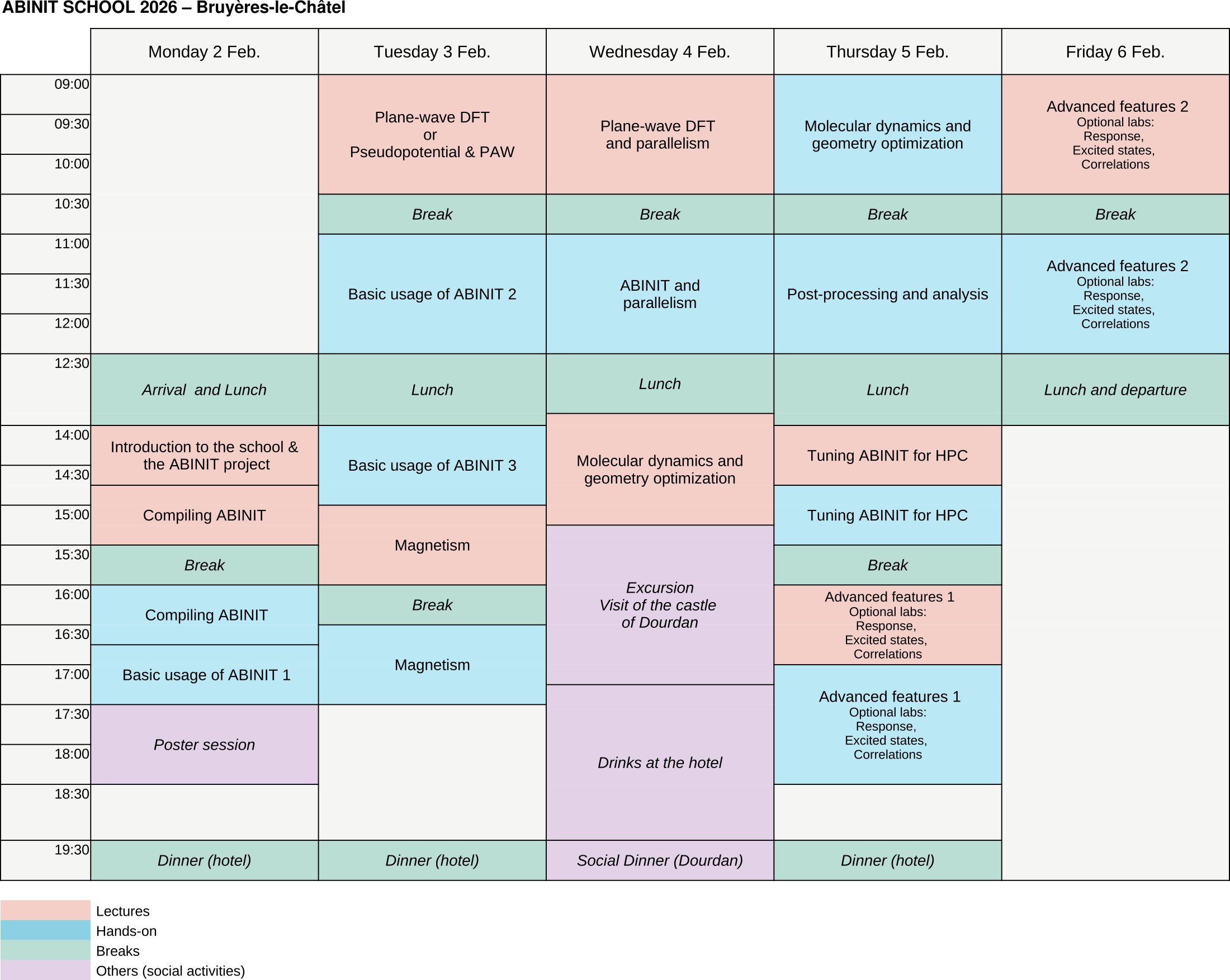Program and speakers
ABINIT School
Bruyères-le-Châtel, Feb. 2 - 6 2026
The school is particularly designed for new users of ABINIT: beginner users are welcomed !
Various topics will be covered:
- Introduction to density-functional theory (DFT) and how to perform a DFT calculation
- Compiling and installing Abinit on laptops and supercomputers
- How to speed-up and optimize a DFT calculation on hundreds to thousands of CPUs and on GPUs for high-performance computing.
- Best practices to perform molecular dynamics and geometry optimizations simulations
- How to describe magnetic systems
More advanced features will also be presented (optional labs)
- Linear response properties (DFPT)
- Electronic correlations (LDA+U, DMFT)
- Excited-states (GW)
The school will be organized with theoretical lessons usually in the morning and hands-on sessions usually in the afternoon.
It starts on Monday February, 2 at 14:00 and ends on Friday February, 6 at 13:30.
- List of speakers
Xavier Gonze Université Catholique de Louvain, Belgium Response properties (DFPT) Marc Torrent LMCE, Université Paris-Saclay, CEA, France Parallelism and tuning ABINIT on HPC Fabien Brieuc LMCE, Université Paris-Saclay, CEA, France Compiling ABINIT Clémentine Barat LMCE, Université Paris-Saclay, CEA, France Algorithms for plane-wave DFT Fabien Bruneval SRMP, Université Paris-Saclay, CEA, France Excited states using the GW method Gabriel Antonius Université du Québec à Trois-Rivières, Canada Plane-wave DFT, post-processing Bernard Amadon LMCE, Université Paris-Saclay, CEA, France Magnetism, electronic correlations (DFT+U, DMFT) Grégory Geneste LMCE, Université Paris-Saclay, CEA, France Molecular dynamics and geometry optimizations

